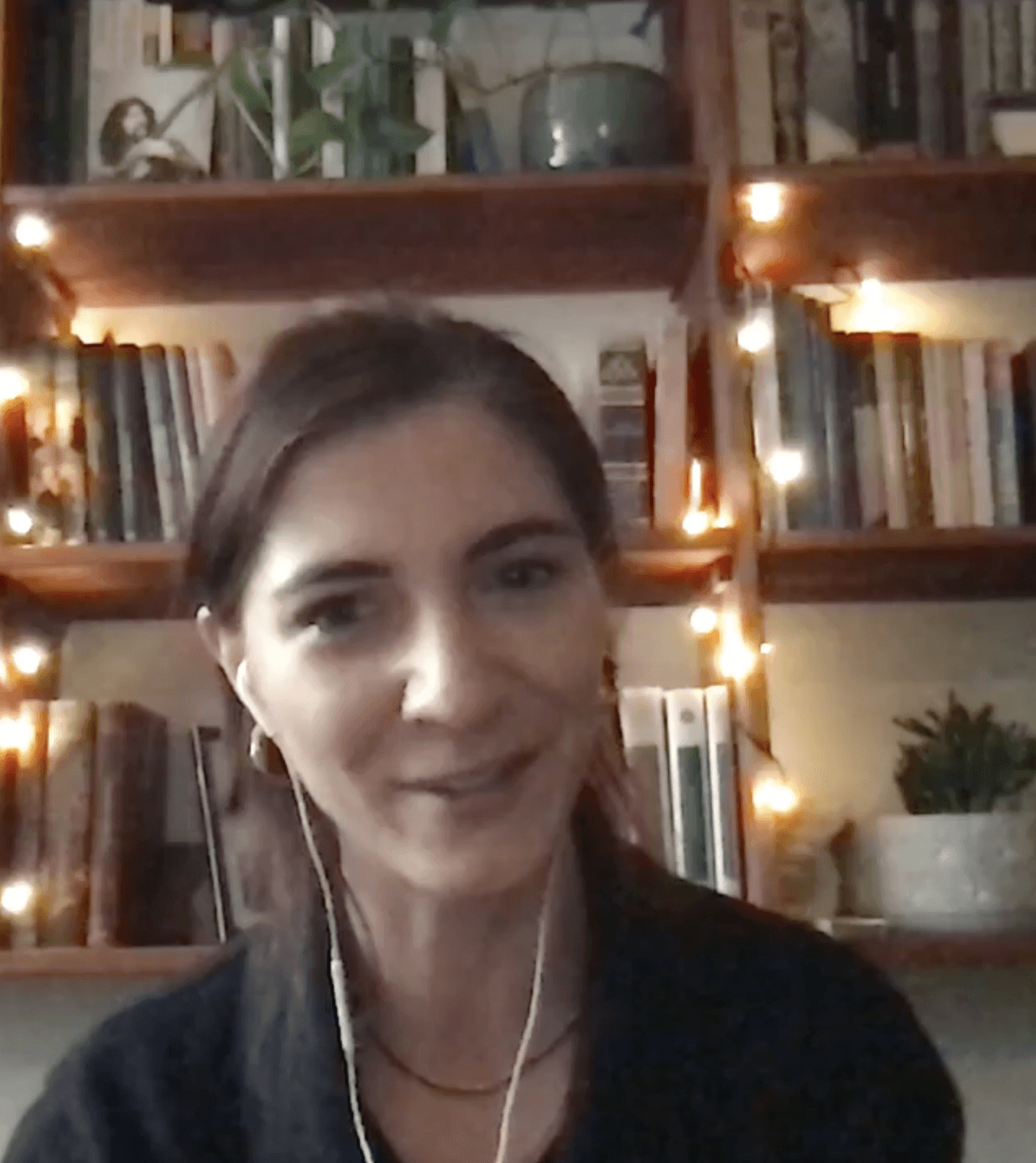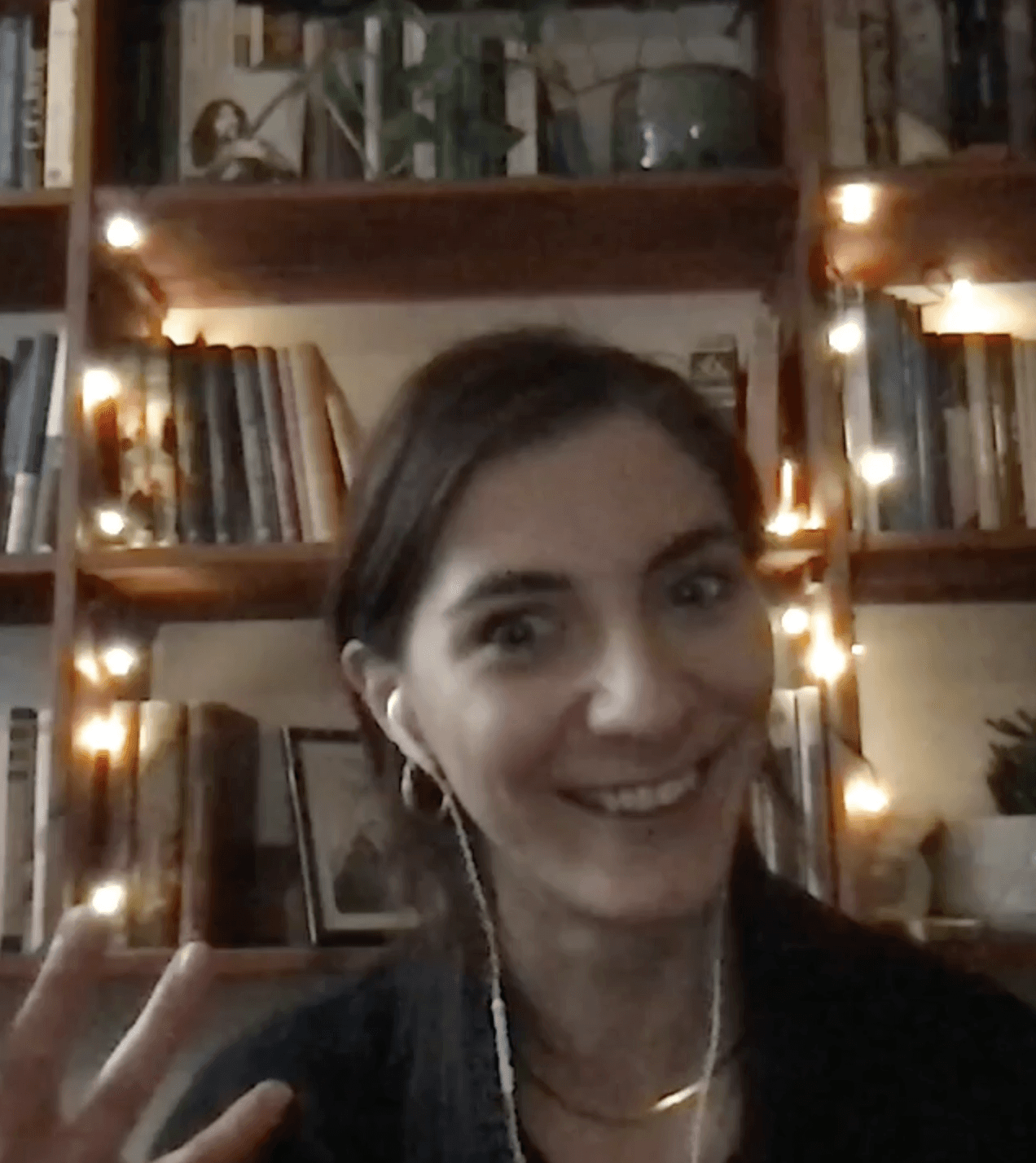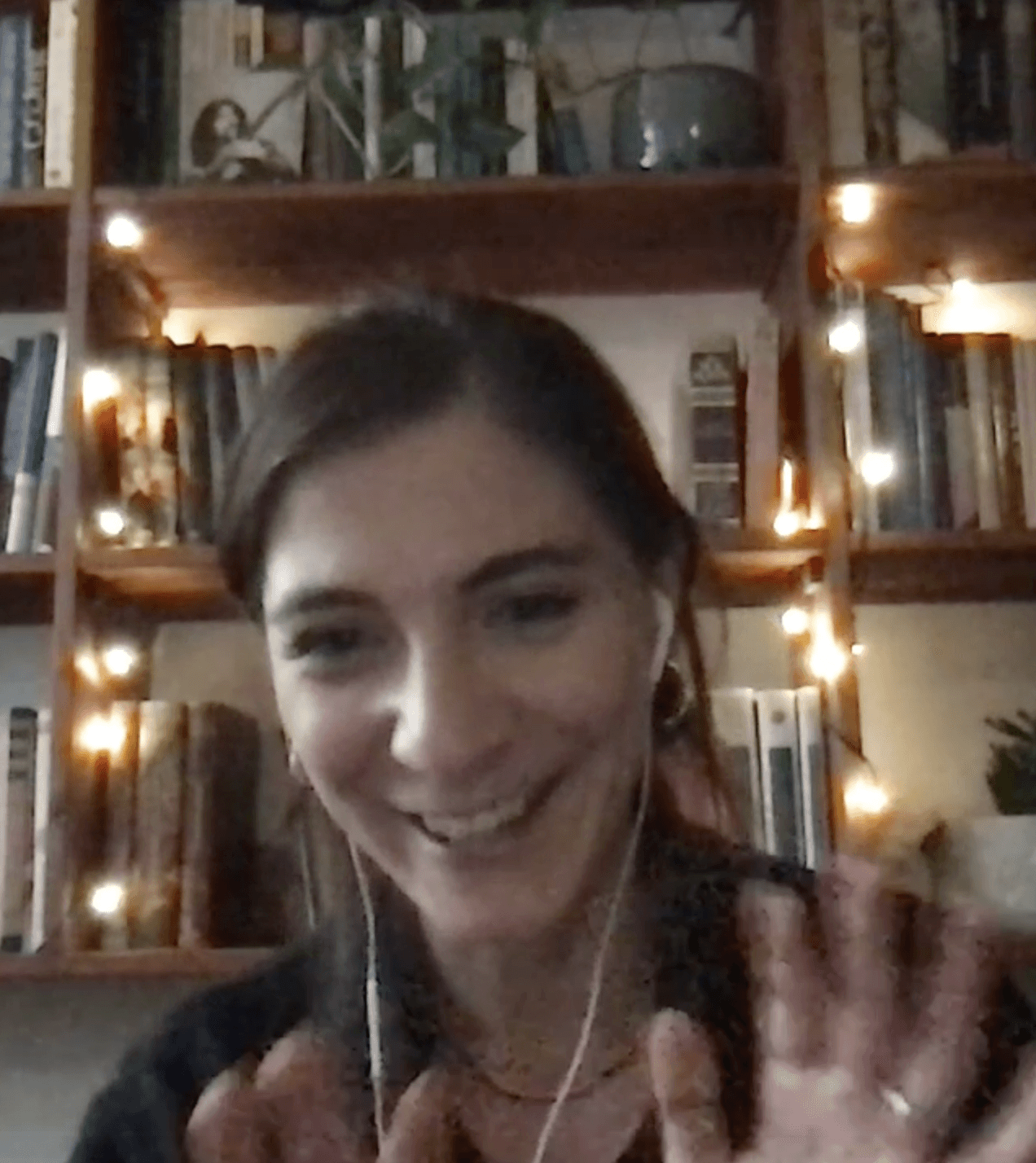
Anička
Anička
& Tech
How did you get into language teaching?
How did you get into language teaching?
How did you get into language teaching?
It started by accident. Some friends asked me to help with their English since mine was a bit better. I said, “Okay,” and I found out I absolutely loved it. It stuck. Fourteen years later, I can’t imagine doing anything else. It became my calling—not something I planned, but something I grew into completely naturally.
It started by accident. Some friends asked me to help with their English since mine was a bit better. I said, “Okay,” and I found out I absolutely loved it. It stuck. Fourteen years later, I can’t imagine doing anything else. It became my calling—not something I planned, but something I grew into completely naturally.
It started by accident. Some friends asked me to help with their English since mine was a bit better. I said, “Okay,” and I found out I absolutely loved it. It stuck. Fourteen years later, I can’t imagine doing anything else. It became my calling—not something I planned, but something I grew into completely naturally.
What kind of students do you usually work with?
What kind of students do you usually work with?
What kind of students do you usually work with?
I mostly teach people who feel like their English just isn’t good enough, even if they can already communicate. I help them push past that mental block. I rarely teach complete beginners unless we connect on a personal level. A lot of my students are engineers—I don’t know why, but we seem to click.
I mostly teach people who feel like their English just isn’t good enough, even if they can already communicate. I help them push past that mental block. I rarely teach complete beginners unless we connect on a personal level. A lot of my students are engineers—I don’t know why, but we seem to click.
I mostly teach people who feel like their English just isn’t good enough, even if they can already communicate. I help them push past that mental block. I rarely teach complete beginners unless we connect on a personal level. A lot of my students are engineers—I don’t know why, but we seem to click.
How do you think about language levels?
How do you think about language levels?
How do you think about language levels?
Honestly, I’m not a fan of labels like A1 or B2. They don’t reflect real skills. I don’t focus on levels—I teach people. I see where they are and help them from there. But one thing I think isn’t talked about enough is the language plateau. People hit it and feel stuck, and they don’t even know why they're so stuck all of a sudden. It happens to everyone, no matter how many languages they speak.
Honestly, I’m not a fan of labels like A1 or B2. They don’t reflect real skills. I don’t focus on levels—I teach people. I see where they are and help them from there. But one thing I think isn’t talked about enough is the language plateau. People hit it and feel stuck, and they don’t even know why they're so stuck all of a sudden. It happens to everyone, no matter how many languages they speak.
Honestly, I’m not a fan of labels like A1 or B2. They don’t reflect real skills. I don’t focus on levels—I teach people. I see where they are and help them from there. But one thing I think isn’t talked about enough is the language plateau. People hit it and feel stuck, and they don’t even know why they're so stuck all of a sudden. It happens to everyone, no matter how many languages they speak.
“Every single person has to go through the language plateau in every single language they learn.”
“Every single person has to go through the language plateau in every single language they learn.”
“Every single person has to go through the language plateau in every single language they learn.”
What is the language plateau and how to recognize it?
What is the language plateau and how to recognize it?
What is the language plateau and how to recognize it?
It’s that point where you can function in a language—you work, talk, survive—but you’re frustrated. You feel like, “Why don’t I know this word? Why do I keep making the same mistake?” You know it’s wrong but you still make that mistake. Progress slows down, and you feel like you’ve hit a wall. It’s not that you’re bad—it’s that this is a totally normal, universal part of language learning.
It’s that point where you can function in a language—you work, talk, survive—but you’re frustrated. You feel like, “Why don’t I know this word? Why do I keep making the same mistake?” You know it’s wrong but you still make that mistake. Progress slows down, and you feel like you’ve hit a wall. It’s not that you’re bad—it’s that this is a totally normal, universal part of language learning.
It’s that point where you can function in a language—you work, talk, survive—but you’re frustrated. You feel like, “Why don’t I know this word? Why do I keep making the same mistake?” You know it’s wrong but you still make that mistake. Progress slows down, and you feel like you’ve hit a wall. It’s not that you’re bad—it’s that this is a totally normal, universal part of language learning.
What’s most important to overcome the plateau?
What’s most important to overcome the plateau?
What’s most important to overcome the plateau?
Consistency and frequency. At that stage, you’re not studying—you’re training. And brains respond better to frequency, not intensity. People want to study two hours once a week, but I say: do 10 minutes a day instead. That works better. You need tools that fit your life and that you can use regularly. If you do that, there’s no way you can fail. It just takes time.
Consistency and frequency. At that stage, you’re not studying—you’re training. And brains respond better to frequency, not intensity. People want to study two hours once a week, but I say: do 10 minutes a day instead. That works better. You need tools that fit your life and that you can use regularly. If you do that, there’s no way you can fail. It just takes time.
Consistency and frequency. At that stage, you’re not studying—you’re training. And brains respond better to frequency, not intensity. People want to study two hours once a week, but I say: do 10 minutes a day instead. That works better. You need tools that fit your life and that you can use regularly. If you do that, there’s no way you can fail. It just takes time.
How has tech changed teaching and learning?
How has tech changed teaching and learning?
How has tech changed teaching and learning?
The biggest change for me is online teaching. Now I work with teachers and students around the world—India, Canada, Japan, you name it. That wasn’t possible when I started. And smartphones—those changed everything. I don’t think I even had one back then. The pandemic helped, too. Before, people were hesitant about online lessons. Now it’s normal.
The biggest change for me is online teaching. Now I work with teachers and students around the world—India, Canada, Japan, you name it. That wasn’t possible when I started. And smartphones—those changed everything. I don’t think I even had one back then. The pandemic helped, too. Before, people were hesitant about online lessons. Now it’s normal.
The biggest change for me is online teaching. Now I work with teachers and students around the world—India, Canada, Japan, you name it. That wasn’t possible when I started. And smartphones—those changed everything. I don’t think I even had one back then. The pandemic helped, too. Before, people were hesitant about online lessons. Now it’s normal.
Is there anything you dislike about how tech changed learning?
Is there anything you dislike about how tech changed learning?
Is there anything you dislike about how tech changed learning?
Technology is great—it made education more accessible. But it also gives people more excuses. Like, “This app doesn’t work,” or “This tool is useless.” People think tech will do the work for them. Like in The Matrix—just plug in and download knowledge and skills. But no, you still have to put in the effort. That part hasn’t changed.
Technology is great—it made education more accessible. But it also gives people more excuses. Like, “This app doesn’t work,” or “This tool is useless.” People think tech will do the work for them. Like in The Matrix—just plug in and download knowledge and skills. But no, you still have to put in the effort. That part hasn’t changed.
Technology is great—it made education more accessible. But it also gives people more excuses. Like, “This app doesn’t work,” or “This tool is useless.” People think tech will do the work for them. Like in The Matrix—just plug in and download knowledge and skills. But no, you still have to put in the effort. That part hasn’t changed.
“If you do it consistently and frequently, there is no way you can fail.”
“If you do it consistently and frequently, there is no way you can fail.”
“If you do it consistently and frequently, there is no way you can fail.”
What tools can help learners above intermediate level?
What tools can help learners above intermediate level?
What tools can help learners above intermediate level?
There are so many tools, it gets overwhelming. It’s like a huge menu—you don’t know what to choose. That’s why knowing yourself is key. You can’t learn everything at once. You need to define your goal, break it down, then find the tools that support that. It’s not about one app—it’s about finding a combo that works for your needs and lifestyle. I always recommend apps to my students in combinations. Duolingo is great for working with sentence structure in different ways. Quizlet helps with targeted vocabulary—I used it myself when I had to learn lots of words quickly. Elsa Speak is nice for pronunciation, especially if you’re not focused on British English. And Replika lets you talk to an AI companion daily, which is great practice.
There are so many tools, it gets overwhelming. It’s like a huge menu—you don’t know what to choose. That’s why knowing yourself is key. You can’t learn everything at once. You need to define your goal, break it down, then find the tools that support that. It’s not about one app—it’s about finding a combo that works for your needs and lifestyle. I always recommend apps to my students in combinations. Duolingo is great for working with sentence structure in different ways. Quizlet helps with targeted vocabulary—I used it myself when I had to learn lots of words quickly. Elsa Speak is nice for pronunciation, especially if you’re not focused on British English. And Replika lets you talk to an AI companion daily, which is great practice.
There are so many tools, it gets overwhelming. It’s like a huge menu—you don’t know what to choose. That’s why knowing yourself is key. You can’t learn everything at once. You need to define your goal, break it down, then find the tools that support that. It’s not about one app—it’s about finding a combo that works for your needs and lifestyle. I always recommend apps to my students in combinations. Duolingo is great for working with sentence structure in different ways. Quizlet helps with targeted vocabulary—I used it myself when I had to learn lots of words quickly. Elsa Speak is nice for pronunciation, especially if you’re not focused on British English. And Replika lets you talk to an AI companion daily, which is great practice.
How should learners pick the right tools?
How should learners pick the right tools?
How should learners pick the right tools?
Do the things you like, but do it in the language you’re learning. Don’t force yourself to read if you’ve never liked reading in your life. If you want to make a language a natural part of your life, you have to actually use it in your life—in a way that feels natural. That’s what people forget. They think it has to be uncomfortable. It doesn’t.
Do the things you like, but do it in the language you’re learning. Don’t force yourself to read if you’ve never liked reading in your life. If you want to make a language a natural part of your life, you have to actually use it in your life—in a way that feels natural. That’s what people forget. They think it has to be uncomfortable. It doesn’t.
Do the things you like, but do it in the language you’re learning. Don’t force yourself to read if you’ve never liked reading in your life. If you want to make a language a natural part of your life, you have to actually use it in your life—in a way that feels natural. That’s what people forget. They think it has to be uncomfortable. It doesn’t.
“If you want to learn to speak a language and sound natural, you have to do the things that feel natural to you.”
“If you want to learn to speak a language and sound natural, you have to do the things that feel natural to you.”
“If you want to learn to speak a language and sound natural, you have to do the things that feel natural to you.”
What advice would you give other language teachers?
What advice would you give other language teachers?
What advice would you give other language teachers?
Start learning a second language yourself. Especially if you’re a native speaker who never had to learn one. It builds empathy and helps you understand the student’s perspective. And while you’re doing that, test the tools yourself. You can’t recommend something you haven’t experienced. Knowing the tech from the learner’s side is essential.
Do you use AI in your teaching?
Do you use AI in your teaching?
Do you use AI in your teaching?
Yes. Replika and Elsa Speak use AI. And of course, I use ChatGPT. It’s amazing for saving lesson prep time—especially when I need exercises with very specific vocab. I used to spend hours writing stories and materials. Now I generate them in minutes and then edit. But you have to be careful. Don’t just copy and paste—make sure it actually works.
Will AI replace language teachers?
Will AI replace language teachers?
Will AI replace language teachers?
I don’t think so. People still connect with people. AI can’t fully replace that experience, especially the stress and emotion of real-life communication. Apps like Elsa are great, but they can’t simulate the pressure of speaking to a real person. I see AI as an opportunity—not a threat. I’d love to find ways to collaborate with it more.
Where can people find your work?
Where can people find your work?
Where can people find your work?
Instagram is the best place. I’m working on a course called “Think in English - the Ultimate Language-training Strategy”—it’s for people stuck on the language plateau. It teaches them how to create a sustainable system for long-term progress. I’m excited to share it soon! And thank you so much for having me—I really enjoyed this conversation.
Anička's Instagram: https://www.instagram.com/yourenglish.rocks/








